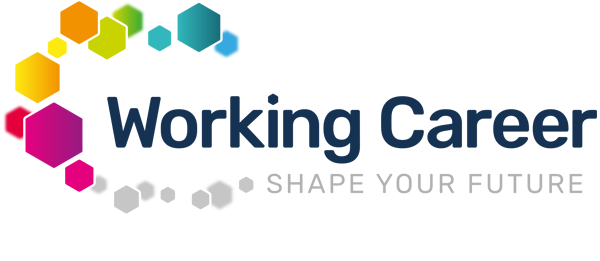Get Prepared for Interview: 30 Common Questions and How to Answer Them
Preparing for an interview is about more than just rehearsing your experience — it’s about learning how to communicate it clearly and confidently.
As any experienced interview coach will tell you, most employers draw from a familiar set of questions designed to assess your skills, motivation, and fit for the role. Reviewing these common interview questions will help you feel calm, prepared, and ready to make a strong impression.
Why Practice Matters
Whether you’re preparing for an in-person, virtual, or pre-recorded video interview, knowing what might be asked helps you stay one step ahead. Practising your answers aloud builds fluency and confidence, reducing interview nerves and helping you think clearly under pressure.
Professional job interview coaches often recommend creating short, structured answers using the STAR method (Situation, Task, Action, Result) to demonstrate your abilities with clarity and impact.
Opening Questions
These are often used as warm-up questions at the start of an interview — but don’t underestimate them. They’re usually scored and offer your first chance to highlight how your background matches the role.
Keep your answers focused, professional, and relevant to the job. Avoid telling your entire life story; instead, give a concise overview of your career journey and what brings you to this opportunity. Aim for about three to four minutes per question.
Examples:
Tell us about yourself.
Talk us through your CV.
Why are you interested in this role?
What attracted you to our organisation?
Interview Skills Coaching Tip:
Prepare a 90-second version of your “Tell me about yourself” answer too — it’s perfect for pre-recorded interviews or quick ice-breakers.
Questions About You
These questions help the interviewer understand your personality, motivation, and professional values. They’re also an opportunity to show self-awareness and confidence.
Examples:
What are your strengths?
What would your colleagues say about you?
What motivates you in your work?
What are your key achievements?
How do you handle pressure or tight deadlines?
What are your career goals for the next five years?
Interview Coach Insight:
Use real examples wherever possible. Employers respond best to authenticity — your stories make you memorable.
Questions About the Role
These questions test whether you truly understand what the job involves and how you can contribute.
Examples:
What do you know about this role?
How does your experience fit our requirements?
What would you prioritise if you were successful?
How would you handle the main challenges of this job?
Research the organisation, read the job description carefully, and match your answers to their language and values.
Competency-Based Questions
Competency questions are structured to assess specific skills or behaviours such as teamwork, leadership, or problem-solving.
Examples:
Tell me about a time you worked effectively in a team.
Give an example of when you dealt with a difficult stakeholder.
Describe a situation where you showed initiative.
Tell me about a time you made a mistake and what you learned.
Tip from Interview Coaching UK:
Answer using the STAR method — it keeps your examples clear, relevant, and results-focused.
Situational and Problem-Solving Questions
These are hypothetical questions designed to assess your judgement and decision-making skills.
Examples:
How would you handle a disagreement in your team?
What would you do if a project deadline was suddenly brought forward?
How would you approach a new task you’ve never done before?
Think about your professional principles: communication, adaptability, and accountability always make strong answers.
Questions About Employers and Fit
Employers want to know whether you’d thrive in their culture and stay for the long term.
Examples:
Why do you want to work for this organisation?
What do you think makes a great team?
How do you like to be managed?
What kind of work environment helps you do your best?
Interview Skills Coaching Tip:
Show enthusiasm — but also self-awareness. It’s perfectly fine to mention what kind of culture brings out your best performance.
Closing Questions
The final part of the interview is your opportunity to leave a positive and confident impression.
Examples:
Why should we hire you?
What makes you the best person for this role?
Do you have any questions for us?
Prepare two or three thoughtful questions to ask at the end — about team culture, professional development, or company direction. This shows genuine interest and engagement.
Ready to Take the Next Step?
Knowing the questions is only half the preparation. Practising your answers with feedback from a qualified interview coach can help you:
✅ Strengthen your structure and clarity
✅ Manage nerves and communicate confidently
✅ Improve performance in both live and pre-recorded interviews
✅ Stand out from other candidates
At Working Career, Diana Dawson offers tailored Interview Coaching UK programmes to help professionals prepare effectively and feel confident on interview day.
Find out more about Interview Coaching UK
Book a session with an Interview Coach today
Before You Go - GRAB A FREE INTERVIEW RESOURCE!
DOWNLOAD YOUR FREE INTERVIEW READINESS SCORESHEET
Are you going for an interview and want to get prepared for it so you can smash it? Download the interactive Interview Readiness Score sheet to see if you are ready.
💼 What’s Inside the Interview Readiness Scoresheet
🎯 A clear checklist of the key areas you need to master — from preparation to STAR responses.
💡 A self-rating scale to help you identify your strengths and the areas that could use a little extra polish.
🚀 Practical prompts & coaching tips so you know exactly where to focus before your interview.
📥 Instant, downloadable PDF — clear, actionable insight that help you face your next interview with confidence.
About Diana Dawson
Diana Dawson is a Coaching Psychologist and Accredited Master Coach (Association for Coaching) with over 20 years’ experience supporting professionals across the UK.
As founder of Working Career, she provides personalised interview coaching and interview skills coaching to help clients overcome nerves, prepare for recorded interviews, and perform at their best.





